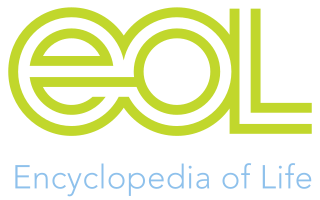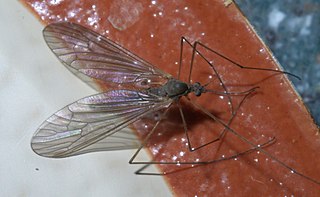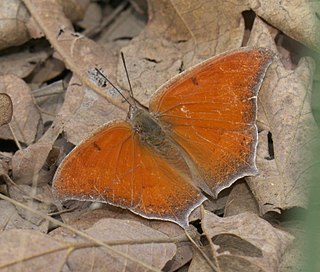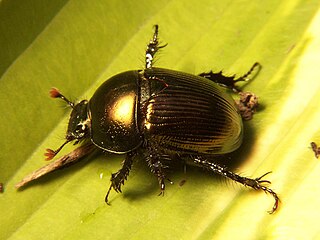
The acouchis are rodents belonging to the family Dasyproctidae from the Amazon basin. They are generally smaller than agoutis and have very short tails, while agoutis lack tails. For this reason the acouchis are also called tailed agoutis.

The Encyclopedia of Life (EOL) is a free, online collaborative encyclopedia intended to document all of the 1.9 million living species known to science. It is compiled from existing databases and from contributions by experts and non-experts throughout the world. It aims to build one "infinitely expandable" page for each species, including video, sound, images, graphics, as well as text. In addition, the Encyclopedia incorporates content from the Biodiversity Heritage Library, which digitizes millions of pages of printed literature from the world's major natural history libraries. The project was initially backed by a US$50 million funding commitment, led by the MacArthur Foundation and the Sloan Foundation, who provided US$20 million and US$5 million, respectively. The additional US$25 million came from five cornerstone institutions—the Field Museum, Harvard University, the Marine Biological Laboratory, the Missouri Botanical Garden, and the Smithsonian Institution. The project was initially led by Jim Edwards and the development team by David Patterson. Today, participating institutions and individual donors continue to support EOL through financial contributions.
Bolbocerosoma pusillum is a species of beetle in the family Bolboceratidae. It is found in North America.

Bolboceratinae is a subfamily of earth-boring scarab beetles in the family Geotrupidae. There are about 8 genera and at least 40 described species in Bolboceratinae.

Ozophora is a genus of dirt-colored seed bugs in the family Rhyparochromidae. There are more than 100 described species in Ozophora.

Hypocaccus is a genus of clown beetles in the family Histeridae. There are more than 120 described species in Hypocaccus.
Peripsocus is a genus of stout barklice in the family Peripsocidae. There are more than 250 described species in Peripsocus.

Hoplitis is a genus of bees in the family Megachilidae. There are more than 380 described species in Hoplitis.
Tetraloniella is a genus of long-horned bees in the family Apidae. There are more than 100 described species in Tetraloniella.

Trichocera is a genus of winter crane flies in the family Trichoceridae. There are more than 140 described species in Trichocera.
Bolbocerosoma lepidissimum is a species of earth-boring scarab beetle in the family Geotrupidae. It is found in North America.

Exechia is a genus of fungus gnats in the family Mycetophilidae. There are more than 180 described species in Exechia.

Atomaria is a genus of silken fungus beetles in the family Cryptophagidae. There are more than 160 described species in Atomaria.
Stylurus spiniceps, the arrow clubtail, is a species of clubtail in the dragonfly family Gomphidae. It is found in North America.
Bolbocerosoma confusum is a species of earth-boring scarab beetle in the family Geotrupidae. It is found in North America.

Anaea andria, known generally as the goatweed leafwing or goatweed butterfly, is a species of leafwing in the butterfly family Nymphalidae. It is found in North America.
Bolbocerosoma elongatum is a species of earth-boring scarab beetle in the family Geotrupidae. It is found in North America.
Bolbocerosoma bruneri is a species of earth-boring scarab beetle in the family Geotrupidae. It is found in North America.
Bolbocerosoma hamatum is a species of earth-boring scarab beetle in the family Geotrupidae. It is found in North America.
Bolbocerosoma ritcheri is a species of earth-boring scarab beetle in the family Geotrupidae. It is found in North America.













